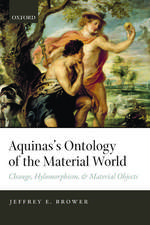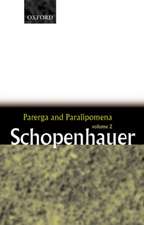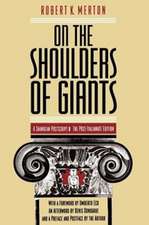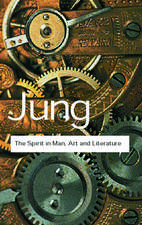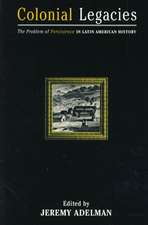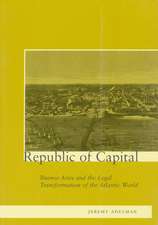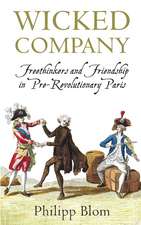Empire and the Social Sciences: Global Histories of Knowledge
Editat de Jeremy Adelmanen Limba Engleză Hardback – 21 aug 2019
| Toate formatele și edițiile | Preț | Express |
|---|---|---|
| Paperback (1) | 217.62 lei 6-8 săpt. | +70.51 lei 6-12 zile |
| Bloomsbury Publishing – 19 mai 2021 | 217.62 lei 6-8 săpt. | +70.51 lei 6-12 zile |
| Hardback (1) | 656.90 lei 3-5 săpt. | |
| Bloomsbury Publishing – 21 aug 2019 | 656.90 lei 3-5 săpt. |
Preț: 656.90 lei
Preț vechi: 943.36 lei
-30% Nou
Puncte Express: 985
Preț estimativ în valută:
125.69€ • 131.24$ • 104.03£
125.69€ • 131.24$ • 104.03£
Carte disponibilă
Livrare economică 14-28 martie
Preluare comenzi: 021 569.72.76
Specificații
ISBN-13: 9781350102514
ISBN-10: 1350102512
Pagini: 248
Dimensiuni: 156 x 234 x 14 mm
Greutate: 0.52 kg
Editura: Bloomsbury Publishing
Colecția Bloomsbury Academic
Locul publicării:London, United Kingdom
ISBN-10: 1350102512
Pagini: 248
Dimensiuni: 156 x 234 x 14 mm
Greutate: 0.52 kg
Editura: Bloomsbury Publishing
Colecția Bloomsbury Academic
Locul publicării:London, United Kingdom
Caracteristici
Crosses disciplines and integrates several fields; intellectual history, history of the social sciences, global history, empires and internationalism
Notă biografică
Jeremy Adelman is Henry Charles Lea Professor of History and Director of the Global History Lab at Princeton University, USA. He has been the recipient of the Guggenheim Memorial Foundation Fellowship and the ACLS Frederick Burkhardt Fellowship, as well as recognitions for his pioneering teaching at Princeton. Chair of the Princeton History Department for the last four years, he is also the founder of the Council for International Teaching and Research.
Cuprins
Introduction: Social Science and Empire: A Durable Tension, Jeremy Adelman (Princeton University, USA) 1. Campillo's Theory of Commercial Empire: Political Economy and Commercial Reform in the Spanish Empire, Fidel Tavarez, (University of Chicago, USA) 2. Poor Mao's Almanack? Empire, Political Economy, and the Transformation of Social Science, Sophus A. Reinert, (Harvard University, USA) 3. Utilitarianism and the Question of Free Labor in Russia and India in the Eighteenth Century, Alessandro Stanziani, (EHESS, Paris, France) 4. Geography and the Reshaping of the Modern Chinese Empire, Shellen Wu, (University of Tennessee, USA) 5. The Periphery's Order: Opium and Moral Wreckage in British Burma, Diana Kim, (Georgetown University, USA) 6. Custom in the Archive: The Birth of Modern Chinese Law at the End of Empire, Matthew Erie, (Oxford University, UK) 7. Nitobe Inazo and the Diffusion of a Knowledgeable Empire, Alexis Dudden, (University of Connecticut, USA) 8. Modern Imperialism and International Law, Josh Derman, (Hong Kong University of Science and Technology, China) 9. Knowledge as Power: Internationalism, Information, and US Global Ambitions, David Ekbladh, (Tufts University, USA) 10. American Hegemony, the Rockefeller Foundation, and the Rise of Academic International Relations in the US, Inderjeet Parmar, (City, University of London, UK) 11. Circumventing Imperialism: Latin American Social Sciences and the Making of a Global Order, 1944-1971, Margarita Fajardo, (Sarah Lawrence College, USA) 12. Western International Theory, 1492-2010: Performing Western Supremacy and Western Imperialism, John M. Hobson, (University of Sheffield, UK) Index
Recenzii
This superb compilation of essays situates the history of the social sciences from the 18th century onward in the contexts of various imperial formations. It provides us with rich accounts of how the social sciences were shaped by diverse forms of imperial order while at the same time they also contributed to shaping them. Authored by an international group of leading scholars, all essays manage to combine global historical questions with due attention to local contexts. The book crosses many academic disciplines, and it fills an important gap in the currently available literature on the global history of knowledge in general and the social sciences in particular.
The foundational moment of the modern social sciences in the 19th century coincided with a time of empire. Imperial logics, mostly implicitly, seeped into the terms and categories that social scientists use. It is high time to de-imperialize the social sciences. This book makes important strides towards a critique of what we could call, for want of a better term, 'methodological imperialism.'
An excellent book for scholars of expertise, empire, and global history alike.
The foundational moment of the modern social sciences in the 19th century coincided with a time of empire. Imperial logics, mostly implicitly, seeped into the terms and categories that social scientists use. It is high time to de-imperialize the social sciences. This book makes important strides towards a critique of what we could call, for want of a better term, 'methodological imperialism.'
An excellent book for scholars of expertise, empire, and global history alike.


